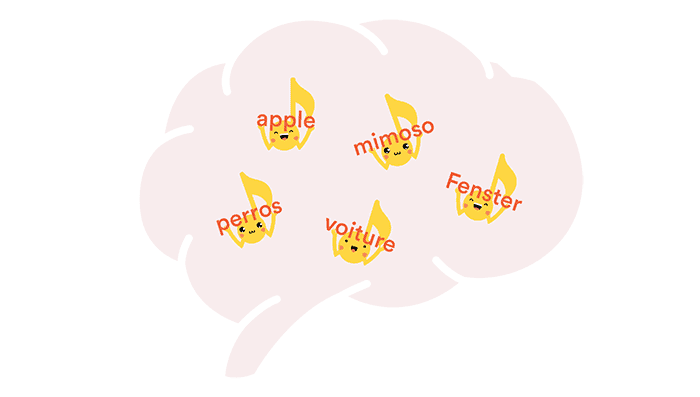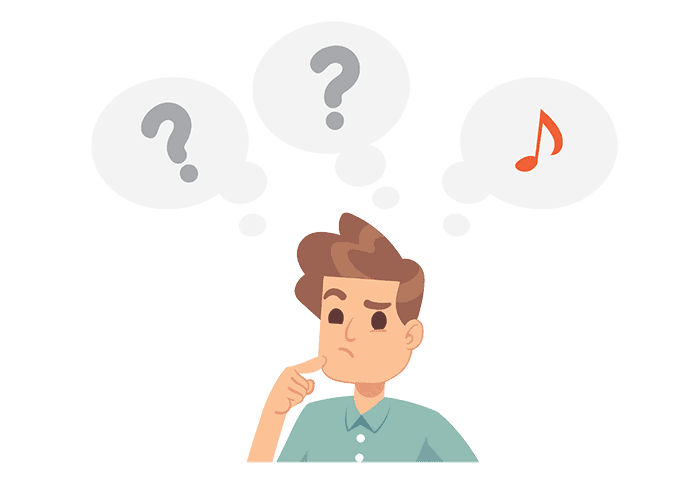Our Blog
Do You Struggle To Learn Languages?
According to a scientific study done in Scotland, researchers found that singing a language is actually the key to learning it. Who knew?
In 2013 the University of Edinburgh did a little experiment. They got 60 people together and decided to teach them Hungarian since it’s very different from other languages spoken in Europe. The subjects were separated into 3 different groups, each using distinct ‘listen and repeat’ methods. Once the groups had finished practicing, each person took five tests. The group who had repeated Hungarian through singing scored significantly higher in 4 of the 5 tests.
Why Music is a Great Way to Learn a Language

It’s no secret that music is a huge brain booster. Scientists have proven time and time again that music helps with memory and improves your auditory processing. These are some key skills to have; not just when you’re learning a new language, but most importantly when you begin to communicate in that language. So at this point, it only makes sense that you should use music to bolster you up. Just think about all the children’s songs you remember. Can you even say your ABC’s without singing them in your head?
Music is something that “sticks” in your brain better than almost anything else. A good example of this can be seen with Dementia and Alzheimer patients. As they get older, people who suffer from these diseases tend to become more and more unresponsive to stimuli. But sometimes, when they listen to songs that they grew up with, the patients will perk up. Some can’t help but move to the music, and others have even been known to start singing along! The positive effect that the music has on them can last up to 10 minutes after it ends. Not only does music get your gray matter movin’, but the slang you pick up will also be very helpful to know when it comes time to speak in your newly learned language.
Singing Along to Songs Will Help You Sound Like a Native

It may make you feel silly at first, but singing songs in a different language is incredibly beneficial when it comes to learning, for lots of different reasons. It can really help you to understand the syntax of the language and be more perceptive to words used every day.
When we sing, we unconsciously aim to repeat the tone and sounds we hear. Everyone wants to sound just like the singer. This happens to be a good thing because it goes a long way in enhancing our pronunciation in that language. This means our accent will become less evident when we transition from singing to speaking said foreign language.
The great thing about songs is that a lot of the lyrics are made up of informal phrases and casual expressions. These are things that just aren’t taught in a formal language class. Not only does this multiply your vocabulary, but also ensures you’re learning more relevant vocabulary. By that, I’m referring to the real words and phrases you will hear from native speakers. Sure, grammar is important, but think about how often you say ‘going to’ as opposed to ‘gonna’.
Benefits of Singing Foreign Music

Even though singing karaoke might actually be the best way to soak in a language, that doesn’t mean you need to stumble your way through “Despacito” in front of a bunch of strangers just to learn Spanish. You can sing anywhere you want: the shower, while you clean the house, or in your car on the way to work. And if you have kids, see if you can get them to sing along with you. Not only would it be adorable motivation to watch them sing in Russian; children have such a capacity for picking up on languages. They will probably learn it faster than you!
Keep in mind that you don’t need to learn a long list of songs. Trying to take on too many will only overwhelm you, and, of course, it’s harder to retain a lot of things at once. Memorizing a few tracks will make such a big difference in your ability to pick up the target language. You’ll surprise yourself with how much easier it is to understand after only a couple of tries.
There are no right or wrong genres to use when doing this either. You can pick up just as much vocabulary in Rock as you can with Pop. This exercise is supposed to be fun, so pick catchy songs that you will actually want to listen to and sing; anything that will motivate you to learn. After a while, you’ll probably want to continue learning more and more songs, especially once you see your accelerated rate of improvement.
How Do You Start Learning With Music?

Trying to learn a song in a foreign language is difficult; unfortunately there’s no way around that. But the good news is it’s a lot like memorizing any song for the most part. Listening to it over and over again will only help. If you want to pick up on it faster, break the song up into segments. Start by memorizing the chorus, as it’s always repeated several times throughout the song, and is designed to be catchy.
Remember to read the lyrics as you listen to the song. Pause and rewind as often as you need until you feel confident with a particular portion of the song. Once you’ve committed it to memory, replay the whole song again until you come to the next unfamiliar part. From there, start the process over again. I know it sounds tedious, but the repetition will help you memorize the lyrics.
So whether you’re planning a trip to Germany, or want to impress your French colleagues at work, music should be a major tool in your language learning arsenal. It will teach you proper pronunciation and popular slang used daily by natives! Music is a simple device that’s often underestimated in its ability to expand your mind and further edification. Now that you’re equipped with all this knowledge, get out those headphones and start listening today!
